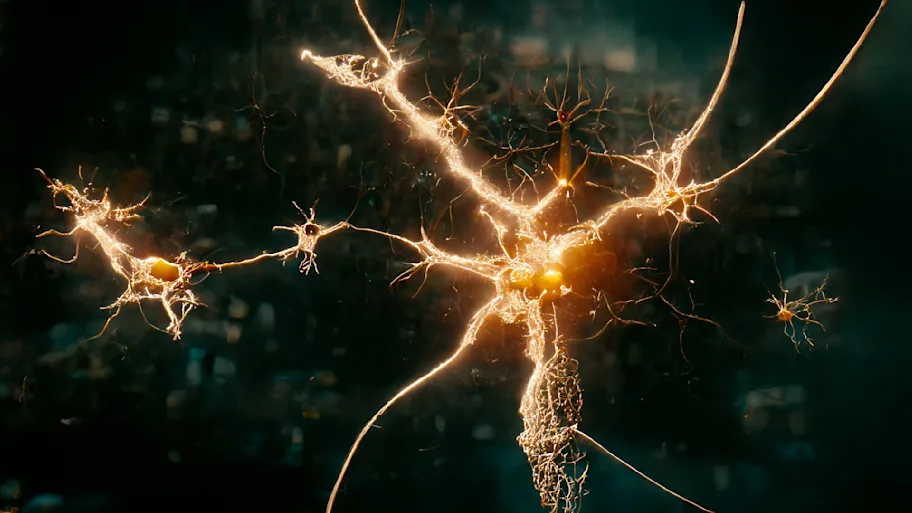
- Science news
- Neuroscience
- Instructions help you remember something better than emotions or a good night’s sleep
Instructions help you remember something better than emotions or a good night’s sleep

Sleep plays a critical role in memory, but we’re still uncovering the details of how it helps us consolidate our memories so that we remember important things. Scientists tested two ways of making words more memorable — telling people to remember them and using words with negative emotional connotations — to see whether instructions or emotions would work better, and whether people remembered more after sleeping. They found that instructions to remember words improved recall, more so than the presence of negative emotional connotations. While sleep in general didn’t improve people’s memories, different types of brain activity during sleep were linked to better recall.
A good night’s sleep has long been understood to help us consolidate new memories, but we don’t understand how. Associations with negative feelings like fear or stress can improve recall, but intentionally trying to remember can also be effective. But these two mechanisms are very different — one involuntary, one deliberate. Which influences memory most? To investigate, researchers asked participants to remember or forget words, some of which had negative emotional associations. They found that instructions improved recall more than emotion.
“What we intend to remember and to forget can be powerful,” said Dr Laura Kurdziel of Merrimack College, lead author of the article in Frontiers in Behavioral Neuroscience. “We have more control over our memories than we often think we do.”
Sleep on it
Researchers performed two matching studies — one where 45 participants completed the task online, and one where 53 participants visited the lab. Half of each group received their words to remember in the morning and then tested their memories that evening. The other half received their words in the evening and were tested on the following morning, after sleeping. For the evening group of lab-based participants, the team supplied electroencephalogram (EEG) headbands that measured their brain activity while they slept. All participants took part in two sessions.
At the first session, participants watched 100 words appear on a screen, each followed by a cue to remember or forget. Half of the selected words had negative emotional connotations, and the other half were neutral. Immediately afterwards, participants were shown another set of 100 words and asked if they recognized them. 50 of these were from the previous task, but 50 were ‘foils’ which they hadn’t seen before.
At the second session, 12 hours later, the scientists asked participants to report as many of the words they’d been asked to remember as possible. The scientists then analyzed the participants’ performance and EEG data.
Read and download original article
Building a memory palace
They found that when it comes to memory, instructions do indeed work better than emotion. People were more likely to recall words they had been asked to remember. However, emotions did play a part: words participants had been asked to remember that had negative connotations were more likely to be remembered. This suggests that although instructions were the primary influence on recall, emotional cues could amplify the effect of instructions. Emotions also increased the chances of false memories: negative foils were more likely to be misremembered as words participants had been asked to remember.
“During encoding, we will devote more attentional resources to words that we are told explicitly to remember,” said Kurdziel. “Along similar lines, cognitive control systems can ‘tag’ information as relevant, biasing the hippocampus to prioritize it. This increases the likelihood that the memory will be reactivated during sleep and transferred to long-term storage. Lastly, instructions don’t just enhance relevant items, they also suppress irrelevant ones. By inhibiting competing memories, remember-cued items face less interference, which improves recall.”
Unexpectedly, whether participants had slept had no effect on how well they recalled words. However, the different types of brain wave activity measured by the EEG were linked to recall. For example, higher levels of REM theta power, a measure of REM sleep, were associated with the misremembering of negative foils.
“Sleep spindles were associated with better recall of negative, remember-cued words,” said Kurdziel, referring to a kind of brain wave that looks like a burst of spikes on the brain wave recordings. “Sleep spindles are widely implicated in the transfer of information from temporary hippocampal storage to more stable representations in the neocortex.”
“By contrast, slow wave sleep was negatively correlated with total recall,” Kurdziel continued. “This was somewhat unexpected — slow wave sleep is often associated with improvements in declarative memory. However, it has also been theorized to facilitate active forgetting of irrelevant or redundant information.”
This could indicate that sleeping only consolidates some memories — prioritizing things you’re motivated to remember over things which are emotional — and that sleeping in general is less significant than your brain’s activity during sleep. However, more research is needed to confirm this.
“The number of participants who provided usable EEG data was relatively small, which reduces confidence in the strength of sleep–memory associations,” explained Kurdziel. “Additionally, the sample consisted primarily of college students, making it difficult to generalize the findings to broader populations.”
REPUBLISHING GUIDELINES: Open access and sharing research is part of Frontiers’ mission. Unless otherwise noted, you can republish articles posted in the Frontiers news site — as long as you include a link back to the original research. Selling the articles is not allowed.







